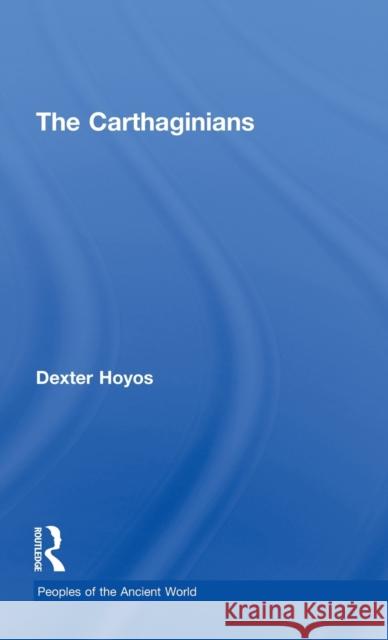The Carthaginians » książka
The Carthaginians
ISBN-13: 9780415436441 / Angielski / Twarda / 2010 / 288 str.
The Carthaginians
ISBN-13: 9780415436441 / Angielski / Twarda / 2010 / 288 str.
(netto: 580,69 VAT: 5%)
Najniższa cena z 30 dni: 503,69
ok. 16-18 dni roboczych.
Darmowa dostawa!
'The Carthaginians' reveals the complex culture, society and achievements of a famous, yet misunderstood ancient people. Beginning as Phoenician settlers in North Africa, the Carthaginians then broadened their civilisation with influences from neighbouring North African peoples, Egypt and the Greek world.
The importance of Carthage in ancient Mediterranean history is often underrated. The Carthaginians tend to be viewed as alien upstarts, intruding on or even threatening the progress of classical civilisation with exotic, if not toxic, oriental ways.
In reality the Carthaginians were a successful multinational and multicultural society: Phoenicial by origin, increasingly bonded with North Africa, and interacting constantly with Egypt, Greek Sicily and the Hellenistic world. They also had close social and commercial ties with Rome and exploited contact with the world beyond the Meditteranean, ranging from the coasts of central Africa to the British Isles. The Carthaginians therefore exerted a major influence on peoples around the western Mediterranean coastlands, where Punic-style architecture has left striking monuments and the Neo-Punic language was widespread among the educated even after Carthage's own destruction. In the later centuries of the city, Carthage equalled and rivalled the western Greek power Syracuse and the expanding Roman Republic.
With almost no writings by Carthaginians themselves surviving, knowledge of the city and society has long been based on what their Greek and Roman enemies recorded. Archaeology now contributes physical, impartial evidence to heighten the colours of this lost society.
This book traces the course of Carthaginian civilization with up-to-date archaeological examinations and transalated selections from ancient writers such as Herotodus, Aristotle, Livy and Plutarch. It also focuses on their religio and cult practices and the lurid reports about child-sacrifice. It reveals what the ancient world actually owed to a civilisation which has been unfairly disdained throughout history.











